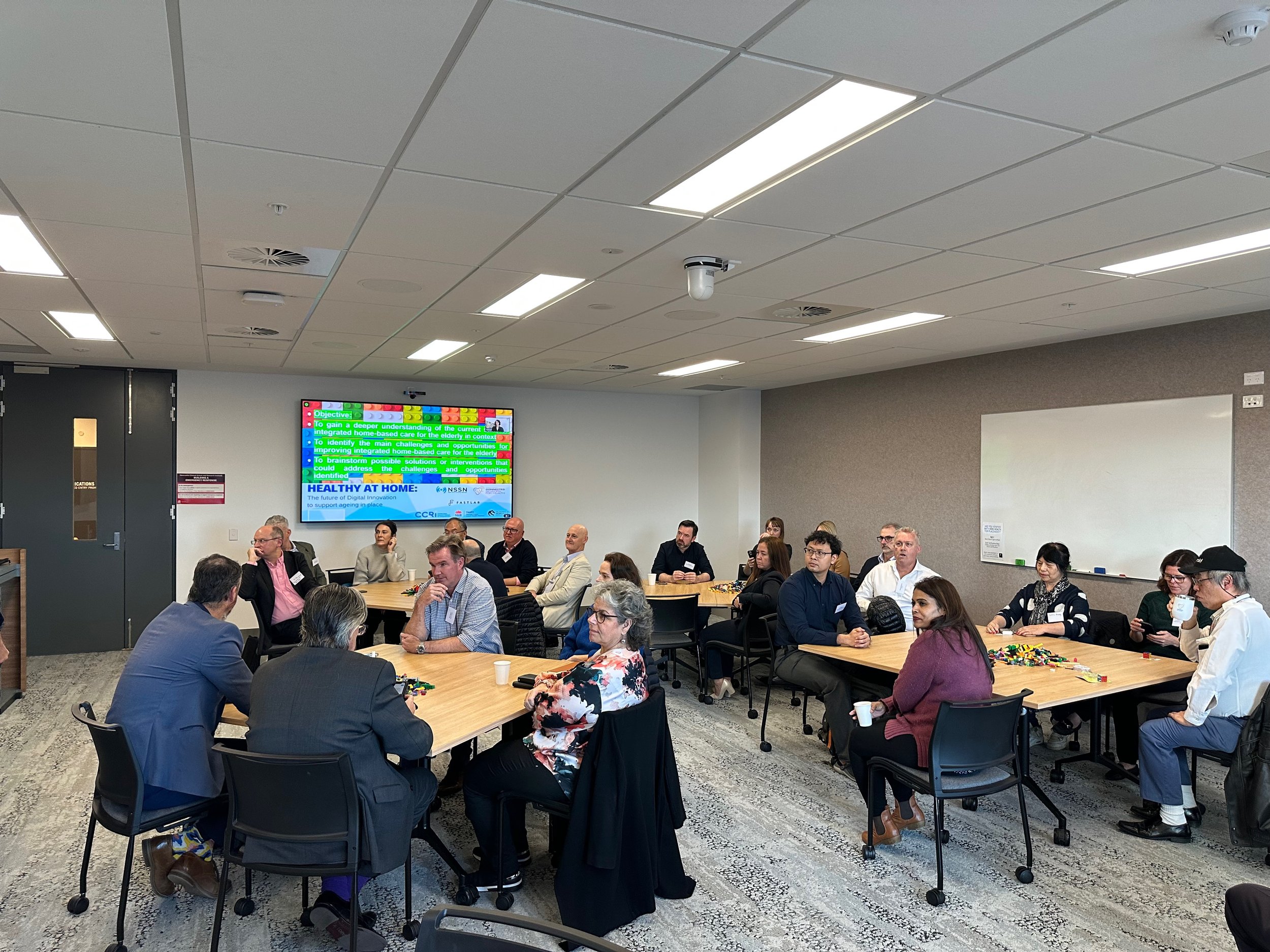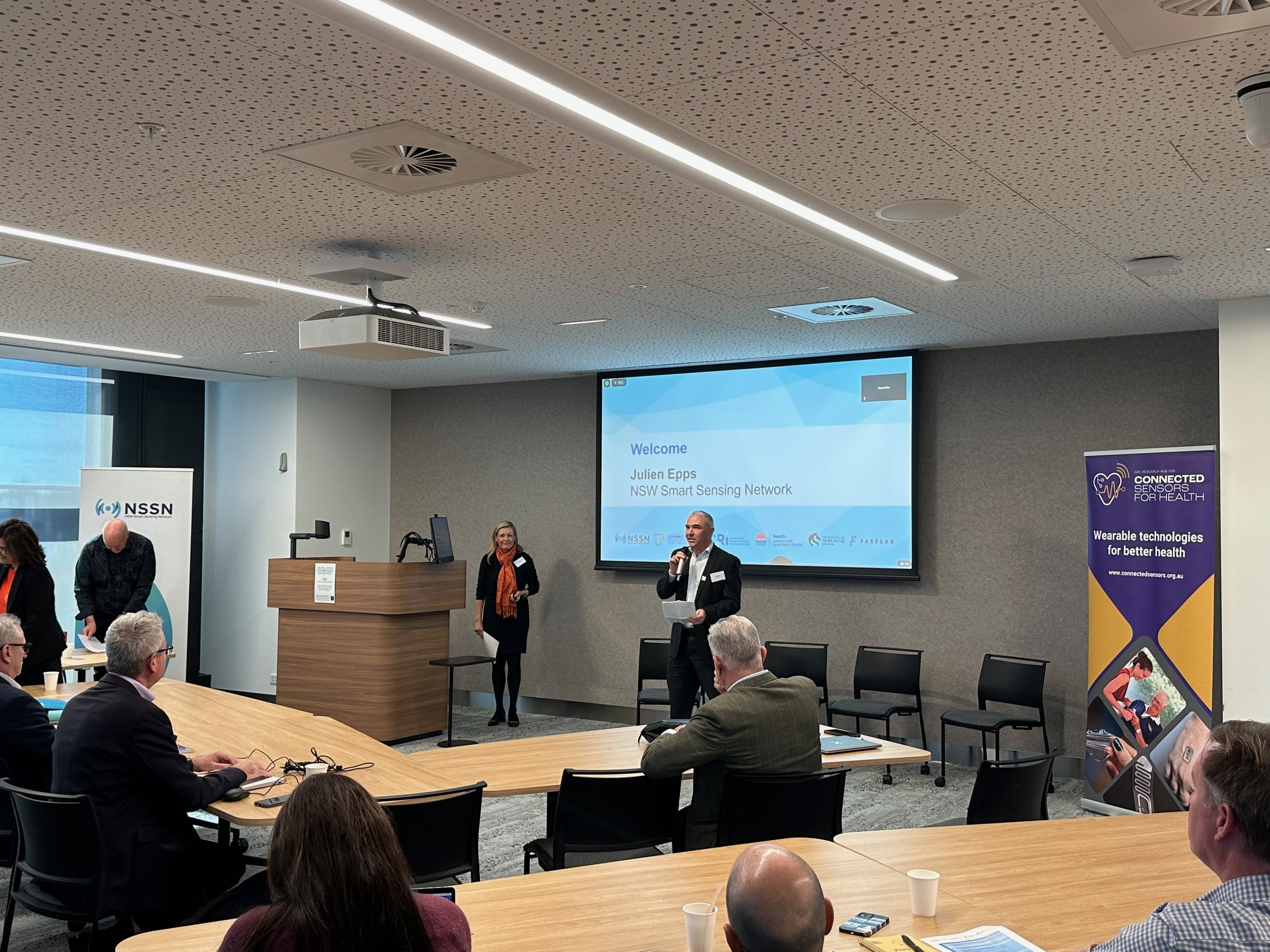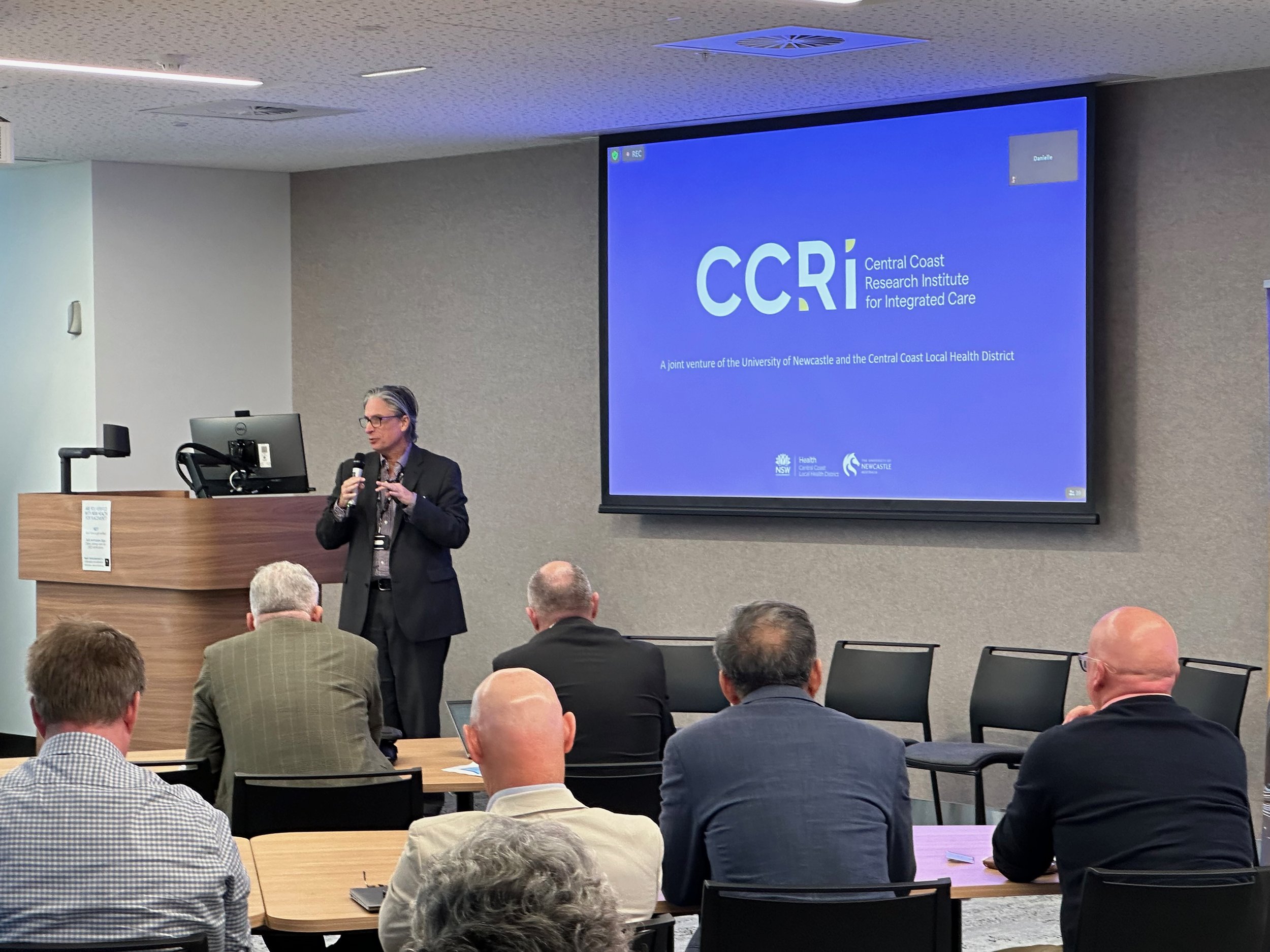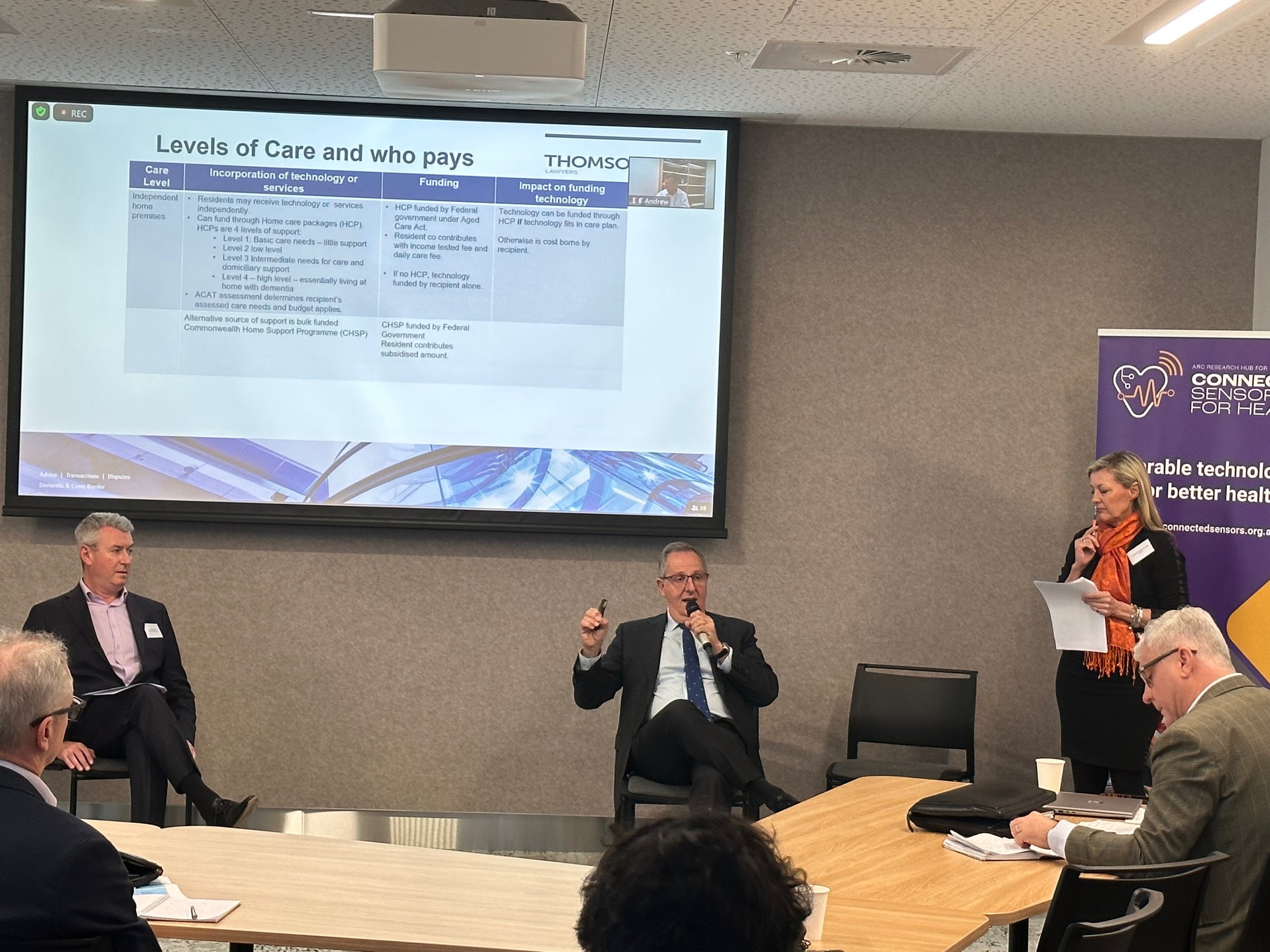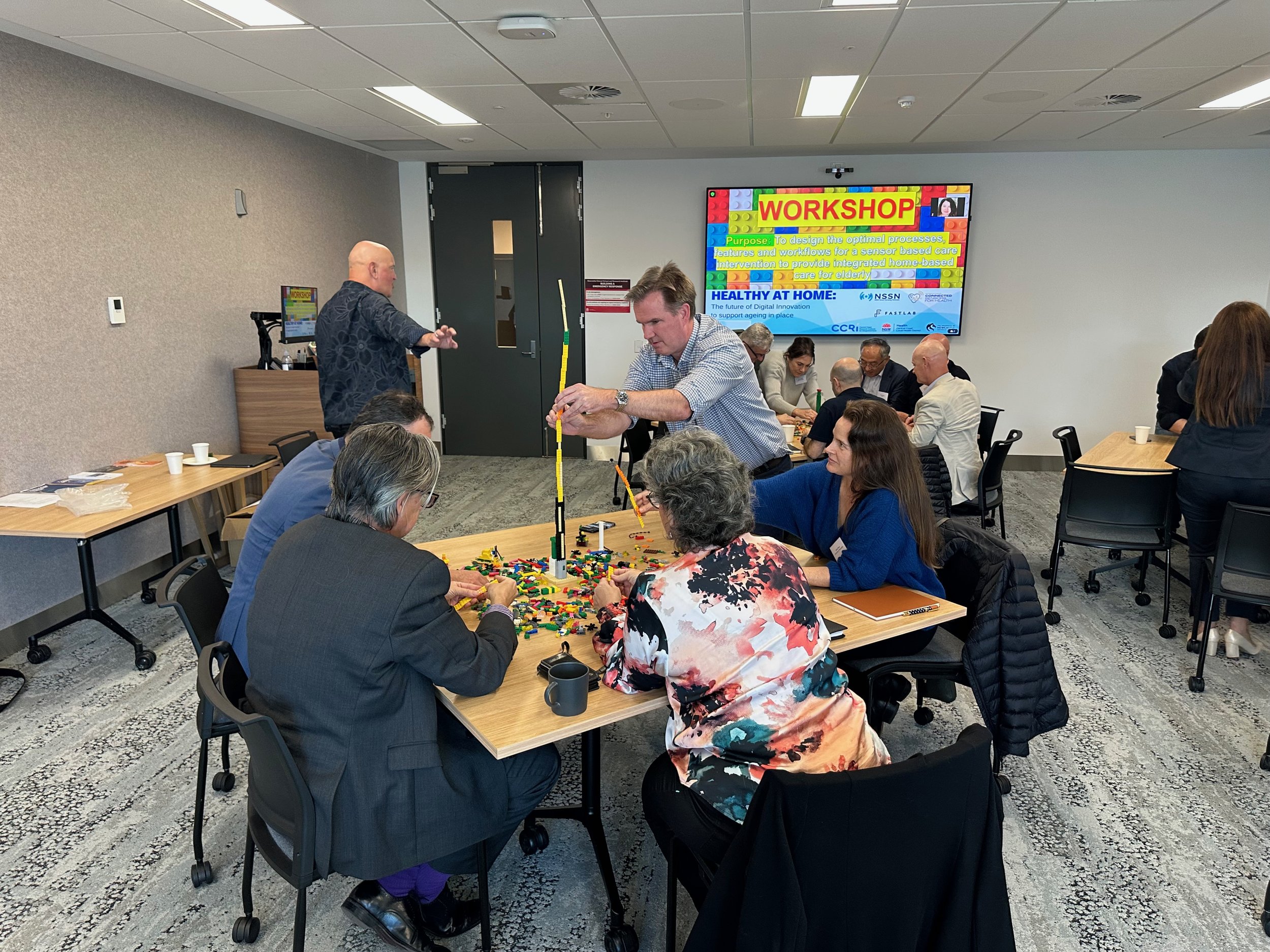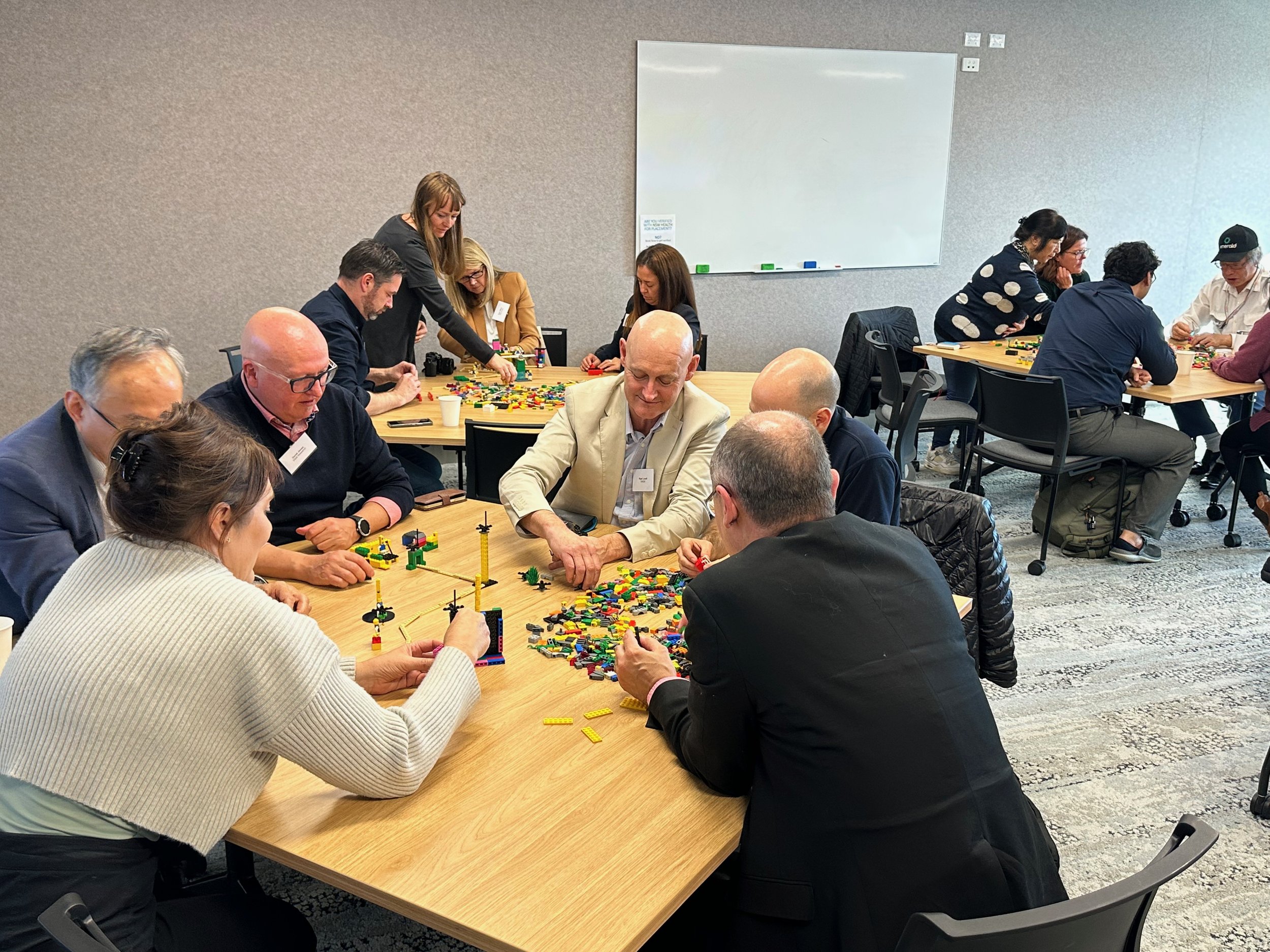Healthy at Home: The NSSN Ageing Forum Taskforce Goes to Gosford
The NSSN Ageing Forum Taskforce gathered yesterday at the Central Coast Research Institute for Integrated Care in Gosford to review the future of digital innovation in healthcare for NSW’s ageing community.
The forum is a partnership between the NSSN, the Australian Research Council (ARC) Research Hub for Connected Sensors for Health, the Central Coast Research Institute for Integrated Care (CCRI), the Central Coast Local Health District, and the University of Newcastle FASTLab.
This was the sixth meeting for the NSSN Ageing Forum Taskforce and provided the perfect opportunity for attendees to learn how a sensor-driven care ecosystem could enhance ageing people’s homelife and the healthcare they receive there.
The successful use and implementation of this eco-system could lead to enhanced independence for NSW’s aged community, while complementing the existing healthcare system. The taskforce used the day in Gosford to explore exactly how to make this innovative ecosystem a reality in NSW.
The event was also the soft launch of the Healthy at Home Program: The Future of Digital Innovation to Support Ageing in Place. The CCRI showcased the Central Coast Health and Wellbeing Living Lab, a $1.5 million joint initiative of the Central Coast LHD and the University of Newcastle, funded by the Greater Cities Commission.
Dr Ian Oppermann, the NSW Government’s Chief Data Scientist presented on a variety of topics, including exploring the best ways to explore funding for the current and future NSW Aged Care Ecosystem, while utilising best practice technological solutions to its most pressing issues. Dr Oppermann also highlighted the need for a comprehensive data security system as we build the next iteration of healthcare for NSW’s ageing population through advanced technology.
Professor Nigel Lovell, Head of the Graduate School of Biomedical Engineering at UNSW presented on the Future of Remote Patient Monitoring, that will be part of one of the biggest transitional shifts in healthcare history. By designing and delivering an effective digital healthcare platform there is an opportunity to create more personalised and effective healthcare for elderly Australians.
Associate Professor Peter Gonski, Director of Aged Care at NSW Health, spoke about the success of the agile Flying Squadron approach to aged care. The work helps to keep aged people comfortable and outside of hospital by providing agile holistic care. Through this approach Professor Gonski and his team were able to significantly reduce emergency admission and hospitalisation for elderly patients.
“We’ve done a lot of work over many years on trying to avoid hospitalisation, we know that when people go into hospital things can deteriorate for many reasons,” Professor Gonski said. “Our model includes a high-powered team of medical professionals. We want to look after people when they’re deteriorating and keep them out of hospital. It’s absolutely possible to treat patients in the community, it is safer and it is more efficient.”
Professor Paul Eggleston, Director of the Future Arts, Science and Technology Laboratory at the University of Newcastle led a LEGO® SERIOUS PLAY® Workshop that closed the day where participants had an opportunity to explore how they could build a model that demonstrated an agile integrated healthcare system in groups.
Professor Eggleston emphasised the strength of the NSSN Ageing Forum Taskforce and shared his ambition at what it is capable of building in the future.
“We have the power, skills and willingness to address a lot of problems when we work together to enhance ageing peoples' experiences at home. I think we’ve done something profound by working together today and we’ve really built some lasting relationships as we look to address this complex problem of supporting ageing in place.”

